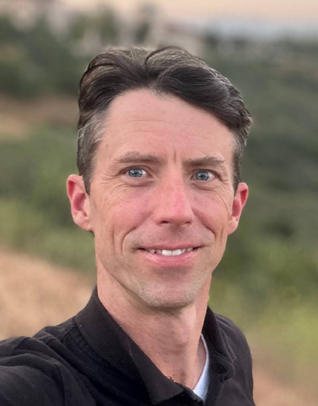Ian Olivo Read
Ian Olivo Read, PhD
I am a scholar–teacher whose work bridges history, sustainability, and the ethical use of new technologies in education. My research began with the study of Latin America’s history, and especially Brazil, exploring how race, health, and social hierarchies shaped post-colonial societies. Over the years, I have expanded my work to include the history of disease and slavery, race and ethnicity, as well as the role of artificial intelligence in higher education. At Soka University of America, I serve as Senior Fellow at the Soka Institute for Global Solutions and Brazil Coordinator, building partnerships with universities and NGOs, leading expeditions to the Amazon and Costa Rica, and designing programs that connect global citizenship with ecological sustainability. I have authored two books, more than 20 scholarly articles, and recent studies on aligning AI adoption with institutional values. My favorite part of teaching is guiding students from the classroom into the field, where they can turn critical ideas into meaningful, real-world experiences.
- PhD, History, Stanford University – Focus on Brazil, slavery, social history, medical history, and networks
- MA, Social Sciences, University of Chicago – Thesis on the rise and fall of the United Fruit Company
- BA, International Studies, DePaul University – Minors in Latin American Studies, Spanish, and Political Science
- Introduction to Latin American Studies – History, culture, and politics of Latin America
- Introduction to the Pacific Basin – Interconnections across Asia, Oceania, and the Americas
- U.S.–Latin American Relations – Historical and contemporary relationships between the U.S. and Latin America
- Brazil, Mexico, and the Nation – Comparative nation-building in Latin America’s largest countries
- Political Economy of Latin America – Economic structures, inequalities, and political change
- The Americas in the Era of Slavery – Slavery and freedom in the Atlantic world
- Plagues and Peoples – How disease has shaped societies from ancient times to today
- Advanced Field Study Courses – Immersive research and cultural exchange in Brazil, the Amazon, and Costa Rica, with a focus on sustainability and global citizenship
- History of Brazil and Latin America, with a focus on post-colonial societies
- History of disease and its impact on social and political change
- Slavery and race in the Americas
- AI ethics and governance in higher education
- Integration of educational technology into global learning
- Sustainability and global citizenship education through field-based learning
- The Hierarchies of Slavery in Santos, Brazil, 1822-1888 (Stanford: Stanford University Press, 2012)
- The Shapes of Epidemics and Global Disease (Cambridge Scholars Publishing, 2020, co-edited with Andrea Patterson)
- Over 20 peer-reviewed articles and book chapters on Latin American history, disease, race, and slavery
- Recent preprints on ethical AI in higher education: “Ensuring Ethical AI in Higher Education” (2025) “Balancing Innovation and Integrity: AI Integration in Liberal Arts College Administration” (2025)
- Created AI tools for higher education, including SmartCourse Navigator, Enrollment Dashboard, and MissionSync AI Audit
- Professor of Latin American Studies, Soka University of America (2009–2024)
- Senior Fellow, Soka Institute for Global Solutions (2020–present)
- Brazil Coordinator (2021–present)
- Co-Director, Center for Race, Ethnicity, and Human Rights (2020–present)
- Director of International Studies (2017–2020)
- Instructor, University of California, University of California Berkeley (2007–2008)
- Visiting Assistant Professor, University of Puget Sound (2006–2007)
- Lecturer, Stanford University (2003–2006)
- Frederick Burkhardt Residential Fellowship for Recently Tenured Scholars, American Council of Learned Societies (2016–2017)
- Professor of the Year Award, Soka University of America (2012)
- National Endowment for the Humanities Digital Fellowship (2008–2009)
- Louis Hanke Post-Doctoral Publication Award (2008)
- Fulbright–Hays Fellowship (2004)
- Giles Whiting Fellowship (2005)

